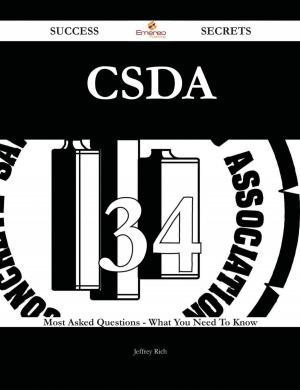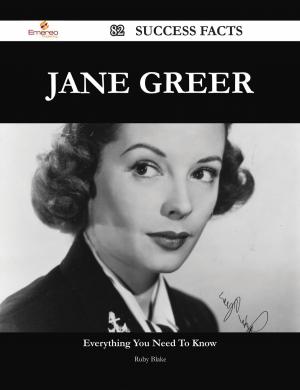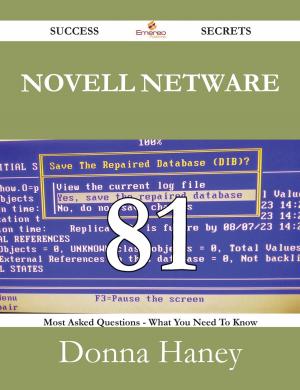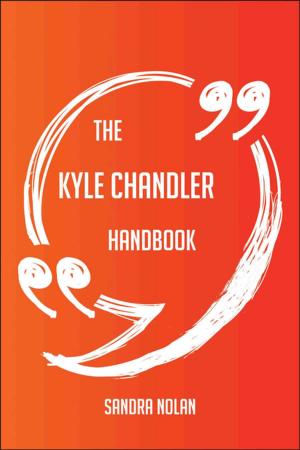Historic Highways of America (Vol. 11) - Pioneer Roads and Experiences of Travelers (Volume I) - The Original Classic Edition
Nonfiction, Reference & Language, Reference, Fiction & Literature| Author: | Archer Butler Hulbert | ISBN: | 9781486499229 |
| Publisher: | Emereo Publishing | Publication: | March 18, 2013 |
| Imprint: | Emereo Publishing | Language: | English |
| Author: | Archer Butler Hulbert |
| ISBN: | 9781486499229 |
| Publisher: | Emereo Publishing |
| Publication: | March 18, 2013 |
| Imprint: | Emereo Publishing |
| Language: | English |
Finally available, a high quality book of the original classic edition of Historic Highways of America (Vol. 11) - Pioneer Roads and Experiences of Travelers (Volume I). It was previously published by other bona fide publishers, and is now, after many years, back in print.
This is a new and freshly published edition of this culturally important work by Archer Butler Hulbert, which is now, at last, again available to you.
Get the PDF and EPUB NOW as well. Included in your purchase you have Historic Highways of America (Vol. 11) - Pioneer Roads and Experiences of Travelers (Volume I) in EPUB AND PDF format to read on any tablet, eReader, desktop, laptop or smartphone simultaneous - Get it NOW.
Enjoy this classic work today. These selected paragraphs distill the contents and give you a quick look inside Historic Highways of America (Vol. 11) - Pioneer Roads and Experiences of Travelers (Volume I):
Look inside the book:
In 1639 a measure was passed in the MassachusettsPg 35 Bay Colony reading: “Whereas the highways in this jurisdiction have not been laid out with such conveniency for travellers as were fit, nor as was intended by this court, but that in some places they are felt too straight, and in other places travelers are forced to go far about, it is therefore, ordered, that all highways shall be laid out before the next general court, so as may be with most ease and safety for travelers; and for this end every town shall choose two or three men, who shall join with two or three of the next town, and these shall have power to lay out the highways in each town where they may be most convenient; and those which are so deputed shall have power to lay out the highways where they may be most convenient, notwithstanding any man’s propriety, or any corne ground, so as it occasion not the pulling down of any man’s house, or laying open any garden or orchard; and in common public grounds, or where the soil is wet or miry, they shall lay out the ways the wider, as six, or eight, or ten rods, or more in common grounds.” With the establishment of the government in the province of NewPg 36 York in 1664 the following regulation for road-making was established, which also obtained in Pennsylvania until William Penn’s reign began: “In all public works for the safety and defence of the government, or the necessary conveniencies of bridges, highways, and common passengers, the governor or deputy governor and council shall send warrents to any justice, and the justices to the constable of the next town, or any other town within that jurisdiction, to send so many laborers and artificers as the warrent shall direct, which the constable and two others or more of the overseers shall forthwith execute, and the constable and overseers shall have power to give such wages as they shall judge the work to deserve, provided that no ordinary laborer shall be compelled to work from home above one week together.
Finally available, a high quality book of the original classic edition of Historic Highways of America (Vol. 11) - Pioneer Roads and Experiences of Travelers (Volume I). It was previously published by other bona fide publishers, and is now, after many years, back in print.
This is a new and freshly published edition of this culturally important work by Archer Butler Hulbert, which is now, at last, again available to you.
Get the PDF and EPUB NOW as well. Included in your purchase you have Historic Highways of America (Vol. 11) - Pioneer Roads and Experiences of Travelers (Volume I) in EPUB AND PDF format to read on any tablet, eReader, desktop, laptop or smartphone simultaneous - Get it NOW.
Enjoy this classic work today. These selected paragraphs distill the contents and give you a quick look inside Historic Highways of America (Vol. 11) - Pioneer Roads and Experiences of Travelers (Volume I):
Look inside the book:
In 1639 a measure was passed in the MassachusettsPg 35 Bay Colony reading: “Whereas the highways in this jurisdiction have not been laid out with such conveniency for travellers as were fit, nor as was intended by this court, but that in some places they are felt too straight, and in other places travelers are forced to go far about, it is therefore, ordered, that all highways shall be laid out before the next general court, so as may be with most ease and safety for travelers; and for this end every town shall choose two or three men, who shall join with two or three of the next town, and these shall have power to lay out the highways in each town where they may be most convenient; and those which are so deputed shall have power to lay out the highways where they may be most convenient, notwithstanding any man’s propriety, or any corne ground, so as it occasion not the pulling down of any man’s house, or laying open any garden or orchard; and in common public grounds, or where the soil is wet or miry, they shall lay out the ways the wider, as six, or eight, or ten rods, or more in common grounds.” With the establishment of the government in the province of NewPg 36 York in 1664 the following regulation for road-making was established, which also obtained in Pennsylvania until William Penn’s reign began: “In all public works for the safety and defence of the government, or the necessary conveniencies of bridges, highways, and common passengers, the governor or deputy governor and council shall send warrents to any justice, and the justices to the constable of the next town, or any other town within that jurisdiction, to send so many laborers and artificers as the warrent shall direct, which the constable and two others or more of the overseers shall forthwith execute, and the constable and overseers shall have power to give such wages as they shall judge the work to deserve, provided that no ordinary laborer shall be compelled to work from home above one week together.















